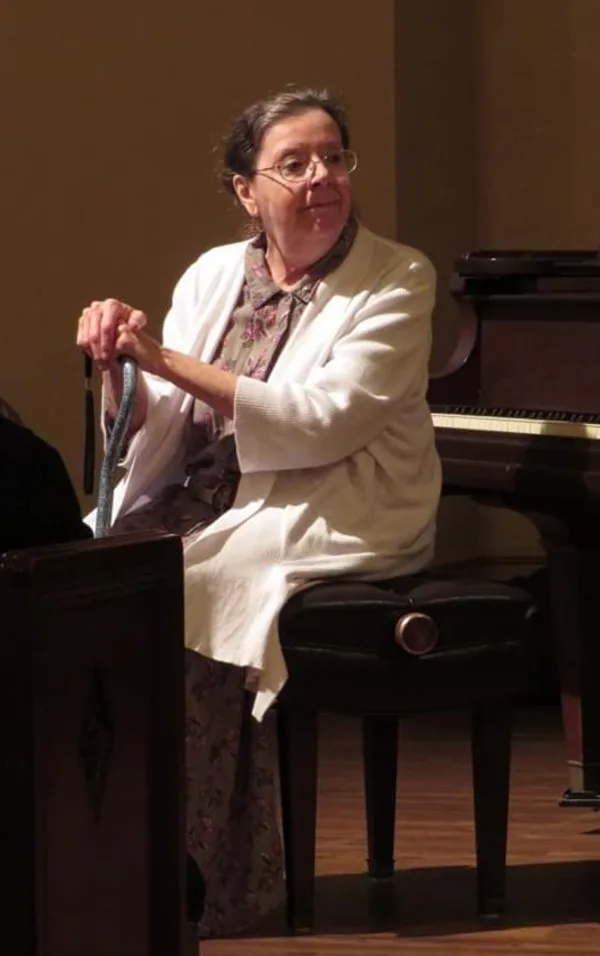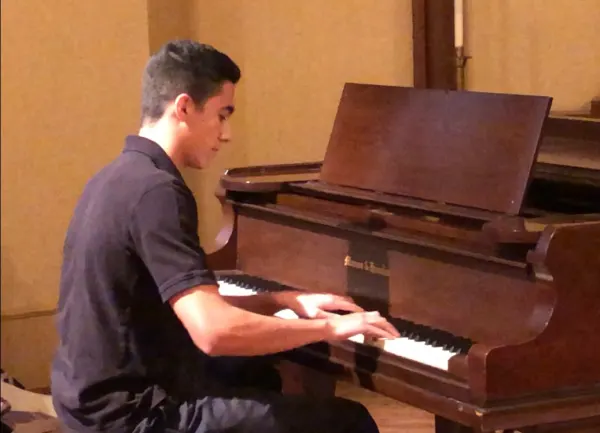Marian Schwartz Piano Instructor
About
It has been my pleasure to see progress in students as beginners, from 3 to 83 years old, for 20 years. Each student is unique, and I learn something new about the music from each one.
Highlights
Specialties
Years experience
Able to read music
Lesson length
Student's age
Student has instrument
Interested musical styles
Photos and videos






No reviews (yet)
Frequently asked questions
What is your typical process for working with a new student?
When you contact me, I will ask if you have a piano or keyboard to practice on. Without regular daily practice you will not see the progress you are looking for.
The first day in the studio I will ask student to play something he is comfortable with, if he has been doodling as a beginner. A student with experience I may ask to sight-read at different levels to evaluate a good place to start. If student is brand new to the piano, I will start with the first lesson, getting to know the keyboard, our fingers, and how fingers and keyboard work together.
What education and/or training do you have that relates to your work?
College music major studies included theory, sight-reading and ear training, classsroom and private piano, chorale, conducting. Theory included composition with every new concept. I have taught various disciplines and all ages since I was 20, including classroom for many years, and taekwondo for 25 years. I have been teaching piano for 15 years, and have been at Barker's for twelve of those.
Do you have a standard pricing system for your lessons? If so, please share the details here.
Piano lessons are paid for by the month, and are $112 per month.
How did you get started teaching?
I have always taught. I was teaching taekwondo in a studio that had a piano in the next room, and I would go and play between classes. A taekwondo student owned a music store and asked me if I would consider teaching piano at his store. I had never taught piano before. He said, Well, you know how to play piano, and I know you are a good teacher. So I jumped in and indeed enjoyed!
What types of students have you worked with?
Little bitty ones, as little as 3. Older beginners, as old as 75. Teenagers, beinning and continuing. Grade school beginners, who grew to be middle and high school advanced students. Students with all kinds of personalities. Reluctant students. Eager students. Students for whom the material comes easily and students who need to take longer to learn. Indeed I am privileged to learn something new about music from finding the best way to present new material to each personality. My students are a great joy to me.
Describe a recent event you are fond of.
As a 10-year-old student of piano, choir and flute in 1964, I was excited to find I enjoyed the Beatles when they came to America. A new program streaming now with Sir Paul McCartney explores the many aspects of putting together music with different instruments, and the different rhythms, harmonies and disonances, melodies and riffs chord progressions and unexpected changes that went into creating this music. The curriculum I prefer makes use of Beatles music, as it is excellent for teaching. I learned a great truth from Sir Paul, who does not read or write (notate) music, nor does he articulate theory principles, though he obviously knows them thoroughly. He said "Just find notes that like each other"
What advice would you give a student looking to hire a teacher in your area of expertise?
Find someone you are comfortable with. Everyone will present their understanding of the music a little differently. There are basics that ought to be taught. Teachers do well to accustom themselves to the pace of each student.
What questions should students think through before talking to teachers about their needs?
An older beginner may have a specific goal in mind, for instance playing praise songs at church which use lead sheets. Another adult may wish to concentrate on blues. This will help to determine what supplements to use to get to where we can do that quickly. Children and younger teens will be required to follow the curriculum in order to learn the basics, going through the lessons in order. Extra fun pieces will be added as the student finds something on his own, or is ready and interested for a suggestion from me.
So what questions you ask will be determined by what you are mainly interested in doing with the piano.